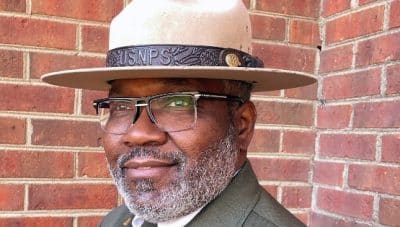Column by David Reynolds
Submit guest columns and letters: [email protected]

Yes, I know, such a pronouncement runs counter to the wisdom of cable news. Nonetheless, my argument is a simple one: Spending for these two critical needs produce benefits which far outstrip their considerable cost.
MasterCard would say that the benefits are priceless. But that’s just a cleaver advertising cop out. This column doesn’t carry ads. Instead, we try to carry a little logic.
But before we start making logical comparisons about what we are getting for our big defense and medical bills, let’s dismiss a phony argument. It goes like this: If we did not spend so much on the military and on medicine, we would have more money for the important things in life. Please tell me what is more important than freedom and good health?
It is the old “butter or guns” argument. But as Porgy would tell Bess, “It ain’t necessarily so.” Think of when you bought that $20,000 car or $200,000 house. Would you have spent all those dollars on something else? Be honest. Not likely.
We budget for normal times — yet spend whatever it takes to get us back to normalcy. That’s why life and death objectives are not budget line items.
So, let’s see what we receive in return for those big bucks we spend on defending our country and maintaining our personal health.
First, national defense. What are the benefits? Remember, no coping out by saying that freedom is not free. Everyone knows that. But does everyone know what we have paid in the past? To defeat Nazi Germany and the Japanese Empire we spent roughly 50 percent of our gross domestic product in winning World War II. During the 1980s the Reagan administration increased its defense budget a trillion dollars, from 4 percent to 6 percent of GDP. Many objected. As for the benefits? We won the Cold War, and the Soviet Union is no more. And today, despite wars in Iraq and Afghanistan, our military spending (most of which is spent stateside) is in the neighborhood of 5 percent GDP.
Two questions: (1) Is our freedom today worth only a tenth of what we paid to win World War II? (2) Why are some not willing to pay a higher price for our freedoms and national security?
On to health care. Like defense, we are constantly told that medicine is too costly – that it is a sunk cost which will eventually sink our economy. And it must come down. Sure, a lower national medical bill would be nice. Nevertheless, we are getting a great deal today from our friends in white coats.
Consider life expectancy. It has reached an all-time high of 78 years – an increase of eight full years since I was born – the year Social Security began. Now the Old Age and Survivors and Disability Insurance (OASDI) program is expected to go broke in seven short years, when benefits paid are expected to exceed the 12.4 percent payroll tax collected.
Whose fault is this? (We’ll exclude Uncle Sam for looting the “trust fund.”) It is your doctor! It is modern medicine! Together they put us back to work when we would rather stay home. (Working, I understand, benefits the economy.)
So, go ahead. Be presidential. Listen to Congress. Blame the doctors. Call them drags on our economy. Forget how they help the economy. Feel better now?
Let’s throw out a few of the many benefits we receive from medicine. Nearly 62 percent of all adults say that they are in excellent or very good health, along with 82 percent of their children. Death rates have dropped significantly for eight of the 15 leading causes of death, including heart disease, stroke, hypertension, diabetes and pneumonia, with the death rate from cancer having dropped 16% from 1990 to 2006. Hip fractures, which rob elderly patients of their mobility, are down 30 percent since 1985. And acute viral hepatitis A has dropped 90 percent in the past 11 years. Et cetera, et cetera.
And don’t forget that U. S. medicine, including physician training and pharmaceuticals, is a leading export. One worldwide benefit: More kids (27 percent more between 1990-2007) live to see their fifth birthday.
Plus, let us not overlook happiness – the gold standard for measuring health benefits. According to the American Psychological Association, the longer you live, the happier you are likely to be. Many older adults find that happiness and emotional well-being improve with time, and have learned to live with less stress.
Just some goodies we receive from modern medicine. Go grab a bag full. Keep in mind that we do not claim that we spend all of our defense or health care dollars wisely. If I said that I will have surely fallen off my rocker. But for now, I am grateful to live in a nation where we can afford guns and butter, both freedom and quality health care. As for the latter, we can improve it the same way we reached the moon, one small step at a time. That’s how you make giant steps.











